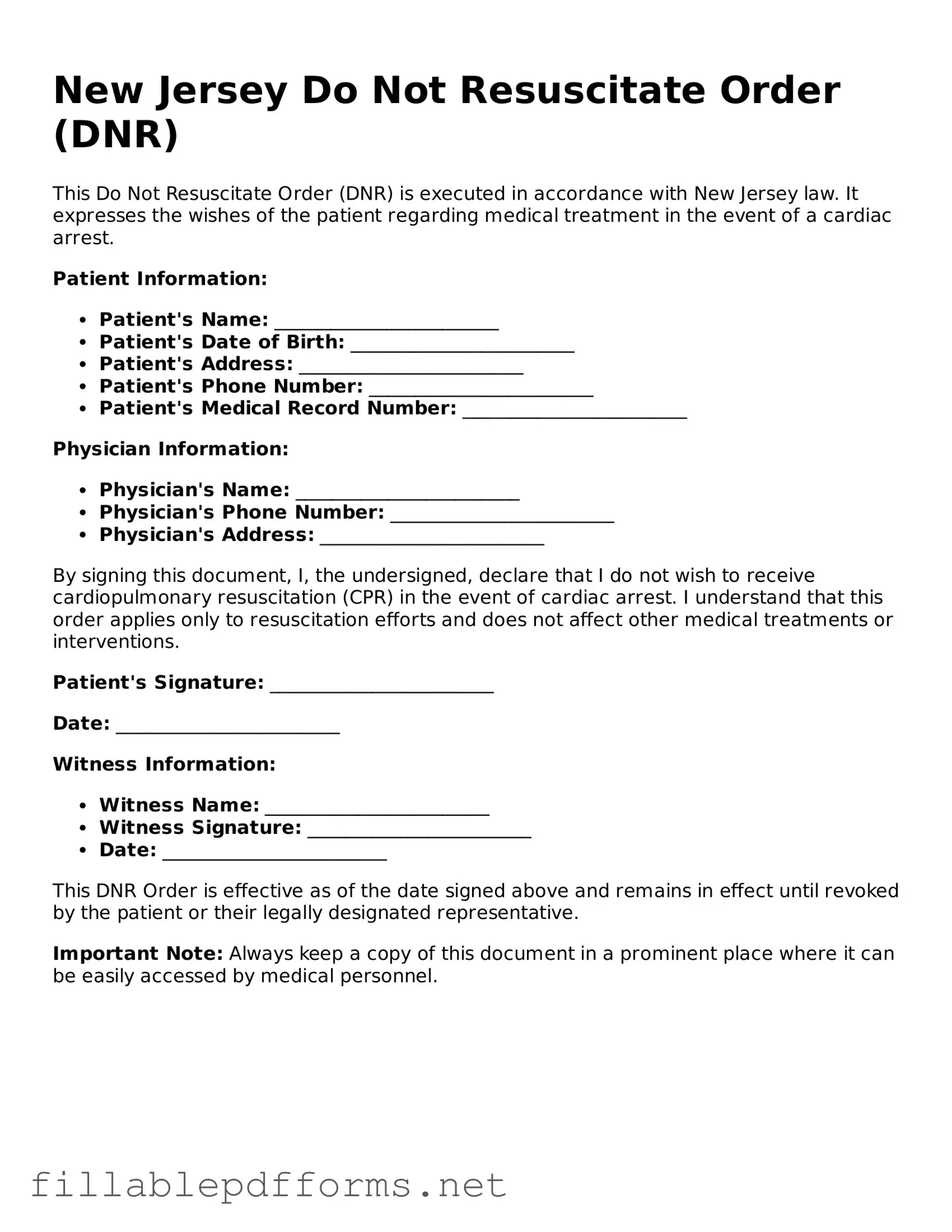Attorney-Verified Do Not Resuscitate Order Form for New Jersey State
A Do Not Resuscitate (DNR) Order form in New Jersey is a legal document that allows individuals to refuse resuscitation efforts in the event of a medical emergency. This form is crucial for those who wish to communicate their end-of-life preferences clearly to healthcare providers. Understanding the implications and proper use of the DNR form can ensure that your wishes are respected during critical moments.
Launch Editor Here

Attorney-Verified Do Not Resuscitate Order Form for New Jersey State
Launch Editor Here

Launch Editor Here
or
▼ Do Not Resuscitate Order PDF
Almost there — finish the form
Complete Do Not Resuscitate Order online fast — no printing, no scanning.